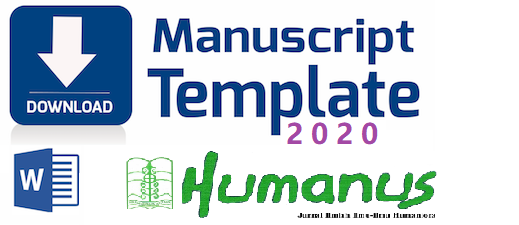THE LANGUAGE ATTITUDE OF CULINARY ENTREPRENEURS IN BANJARMASIN
 ),
), (1) BALAI BAHASA KALIMANTAN SELATAN
 Corresponding Author
Corresponding Author
Copyright (c) 2019 Humanus
DOI : https://doi.org/10.24036/humanus.v18i2.107171
Full Text:
 Language : en
Language : en
Abstract
This study aims to describe the language attitude of culinary business entrepreneurs, and the culinary business language behavior.in Banjarmasin Type of research sociolinguistic research The method used in collecting data was by using questionnaire, data processing by calculation with Likert scale, the data is analyzed and presented in the form of diagrams and tables. The results found are a) the attitude of the language towards Indonesian language associated with norm awareness, loyalty, and cognition of culinary entrepreneurs in Banjarmasin is generally low (C); this is caused by the assumption that language is not important, and what is preferred is the market or market; b) the response of culinary entrepreneurs to the linguistic phenomenon in the world of chemistry shows a trend that is better than language attitudes. This mean s that they can adequately judge whether the use of the language used in the business of graft is wrong or right, good or bad.
References
Bloomfiled, L. (1958). Language. New York: Henry and Holt Company.
Chaer, A. dan L. A. (2004). Sosiolinguistik (Perkenalan awal). Jakarta: PT. Rineka CIpta.
Depdiknas.(2008). Kamus besar bahasa Indonesia (V). Indonesia: Gramedia Pustaka Utama.
Fishman, J. A. (1975). Language and nationalism (second pri). Massachussetts: Newburry House Publisher.
Grasindo, T. (2017). Pedoman Umum Ejaan Bahasa Indonesia (PUEBI) (II). Jakarta: PT. Grasindo.
Hadi, S. (1982). Pengantar statistik III. Yogyakarta: Fakultas Psikologi UGM.
Halim, A. (1978). Sikap bahasa dan pelaksanaan Kebijakan Bahasa Nasional”. Pengajaran Bahasa Dan Sastra, VI (6).
Haugen, E. (1972). .”Dialect language, nation. In S. Anwar (Ed.), Dili.
Karsana, D. (2009). Kesetiaan berbahasa etnik Sunda di Daerah Istimewa Yogyakarta. Universitas Gadjah Mada.
Lukman. (2017). Sikap bahasa pelaku usaha terhadap penggunaan bahasa Indonesia pada tempat usaha dan nama produk di Kota Makasar. In KOLITA 15 ATMA ATMAJAYA (pp. 75–79). Jakarta: Pusat Kajian Bahasa dan Budaya Universitas Katolik Atmajaya.
Mackey, W. (1972). The description of bilingualism’’ dalam J.A Fishman (ed). In J. A. Fishman (Ed.).
Muhammad, (28 Januari 2019, 01.56am). Etos kerja para pedagang di kota wisata kuliner baiman Banjarmasin. https://idr.uin-antasari.ac.id/11016/ Senin, 30 Desember 2019 2.02am
Rokhmadi, & Wijana, D. P. (2010). Sosiolinguistik: Kajian teori dan analisis. Yogyakarta: Pustaka Pelajar.
Subagyo, D. and. (1998). Statistik induktif (4th ed.). Yogyakarta: BPFE.
Sudijono, A. (2005). Pengantar statistik pendidikan. Jakarta: PT Raja Grafindo Persada.
Sumarsono, & Partana, P. (2004). Sosiolinguistik. Yogyakarta: SABDA.
Winkel, W. (1984). Psikologi pendidikan dan evaluasi belajar. Jakarta: Gramedia Pustaka Utama.
Zamainsyah, A., Kiki, Z. Isneini, M. (2018). Pengetahuan peraturan kebahasaaan dalam memengaruhi sikap bahasa pedagang makanan di kota Metro) https://ojs.badanbahasa.kemdikbud.go.id/jurnal/index.php/kandai/article/view/564/0
 Article Metrics
Article Metrics
 Abstract Views : 287 times
Abstract Views : 287 times
 PDF Downloaded : 106 times
PDF Downloaded : 106 times
Refbacks
- There are currently no refbacks.
Copyright (c) 2019 Humanus

This work is licensed under a Creative Commons Attribution-NonCommercial 4.0 International License.









